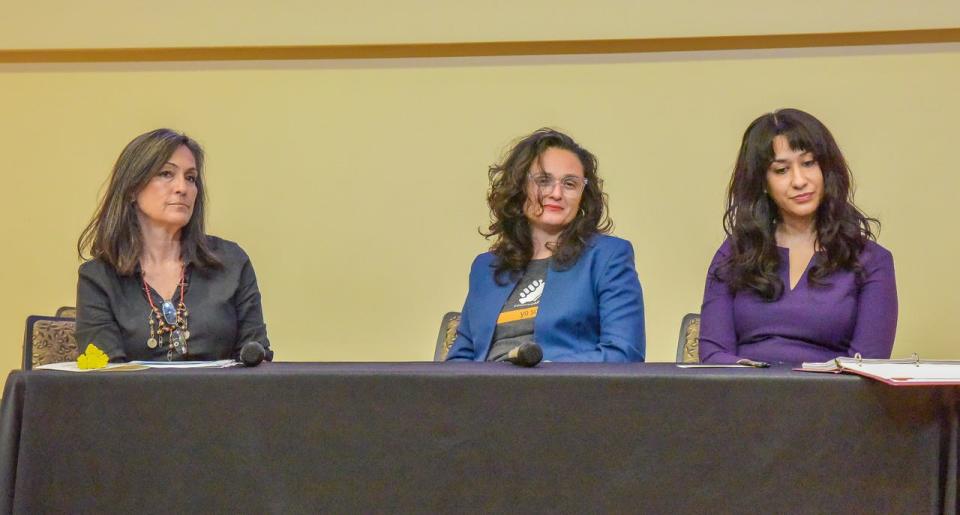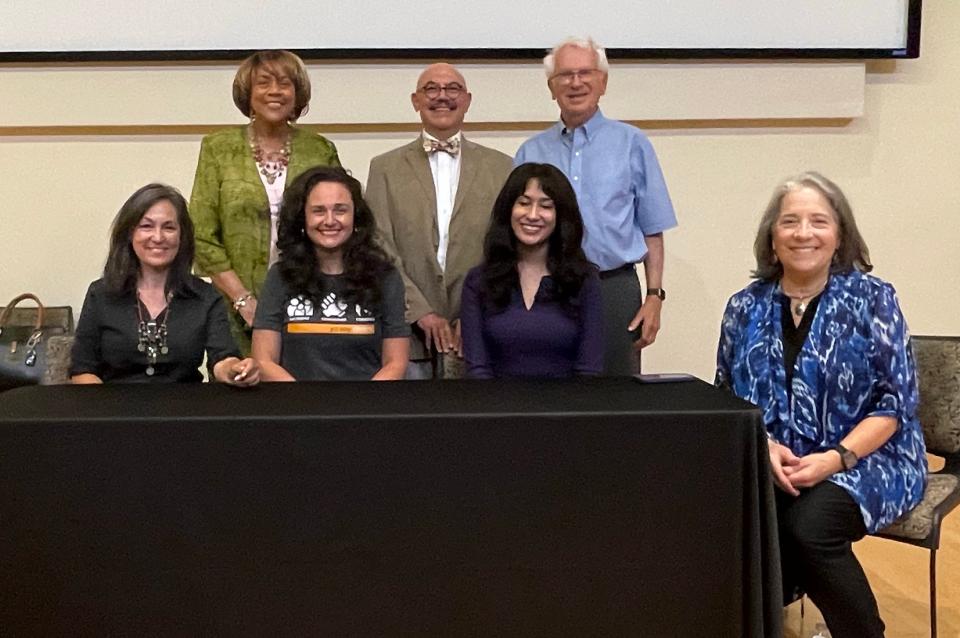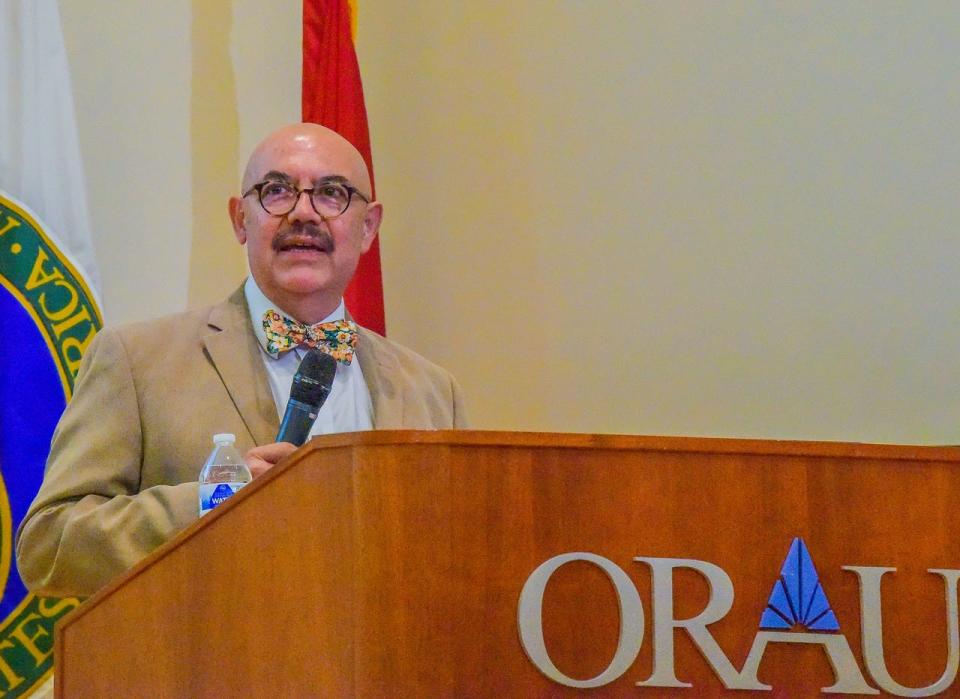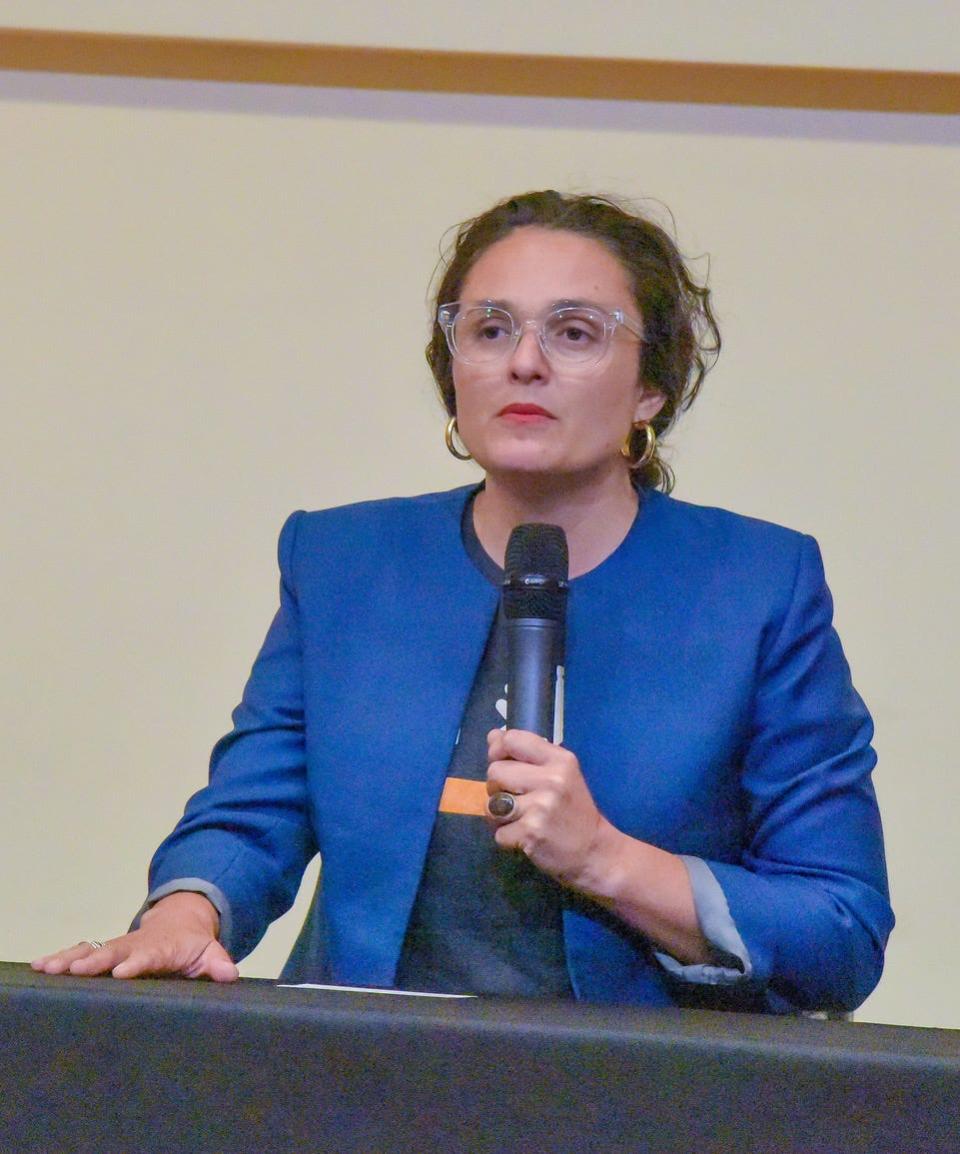Why East Tennessee should welcome immigrants
A recent panel discussion addressing controversies surrounding Latino immigrants coming to the United States highlighted an irony: American employers are desperate to fill plenty of job openings that many immigrants and asylum seekers could fill if they were admitted to the country.

Madeline Rogero, the former mayor of Knoxville (2011-'19) who has Spanish and Italian heritage, said the latest data from the U.S. Chamber of Commerce indicated “companies are facing unprecedented challenges trying to find enough workers to fill open jobs right now.”
Across all U.S. industries are 9.9 million job openings, she said. If all 5.8 million unemployed workers in our nation took available jobs, “we’d still have 4.1 million open jobs. So, my question is, why aren’t we saying to immigrants, come here because we have jobs for you?”
Now that the Title 42 public health restriction related to the pandemic has expired, many asylum seekers are still being blocked at the Mexican border from entering the United States. The reason: new rules requiring that appointments be made using a government app.

Rogero’s observations introduced a panel discussion on May 23 that represented the last of four presentations in the "Roots of America" exploration of cultures series co-sponsored by the Oak Ridge Breakfast Rotary Club and the Oak Ridge Institute for Continued Learning. Rogero, the panel moderator, was introduced by Eugenio Vargas, a retired neurosurgeon and Mexican immigrant whose medical practice spanned many years in East Tennessee.
Vargas provided a poignant perspective on Latino immigration.
"Latino and Hispanic immigrants,” he noted, “make up part of the fabric and strength of this nation. We are cashiers, bankers, teachers, construction workers, physicians, actors, landscapers, farmers, CEOs, fast food workers, restaurant owners, legislators, professional athletes, judges, movie directors, professional musicians, small business owners, lawyers, and the list goes on.”

Rogero and three Latina panelists – Arléne Amarante, Claudia Caballero and Patricia Robledo – told moving stories about their experiences and heritages. One member of the audience - the event was held at Oak Ridge Associated Universities' Pollard Auditorium - called the presentation on the realities of immigration today and the myths and misunderstandings complicating local and national responses “a mind-bending experience.”
Amarante, an assistant professor of law at Lincoln Memorial University, is a first-generation American whose parents emigrated from Mexico to the United States. Caballero, president and chief executive officer of Centro Hispano de East Tennessee, was raised both in Honduras and the United States. Robledo, a native of Colombia, South America, works for Knox County Schools as its first Latino community outreach specialist.
Rogero gave some history that explains why many Americans with Mexican ancestors have said, “My people didn’t cross the border; the border crossed them.”
The history between Mexico and the US; immigration stories
When the war between the United States and Mexico ended with the signing of the Treaty of Guadalupe Hidalgo on Feb. 2, 1848, Mexico gave up 55% of its territory, including the present-day states of California, Nevada, Utah, New Mexico, most of Arizona and Colorado, and parts of Oklahoma, Kansas and Wyoming.
The treaty effectively halved the size of Mexico and doubled U.S. territory. As a result, 100,000 Mexicans suddenly became U.S. citizens and the expanded nation had access to Pacific Ocean ports and an abundance of minerals and other natural resources.
When Rogero asked the audience members if they have family immigration stories, most raised their hands.

“Your family may have come willingly to seek a better life or to escape persecution, wars or economic hardship,” she said. “They may have come against their will as did the enslaved people from West Africa.
“Some here may have ancestors who were among the 60,000 prisoners in England who were sent to this country and forced into servitude; they were later released, and they mostly settled in Maryland and Virginia to start their new life.”
The former mayor said her Rogero ancestors chose to leave the harsh conditions of the Spanish island of Majorca to sign on in 1768, along with 1,400 others, as indentured servants that were transported by ship to New Smyrna, Florida, then under British rule.
Amarante said her grandfather came to the U.S. from Mexico under the Bracero Program established in 1942. It permitted millions of Mexican men to work legally in the United States on short-term farm labor contracts.

Caballero’s mother was a dairy farmer from southern Illinois who joined the Peace Corps in the 1980s with the intention of going to Honduras, “which she thought was in Africa until she found out it is actually in Central America.” She dated an agricultural engineer and gave birth to Caballero and her four younger siblings.
Caballero said her mother registered all her children as American citizens, “although I was born on a farm without electricity and running water in the western mountains of Honduras.” The family did live for four years in Nebraska, so she speaks fluent English.
Robledo said her oldest sister, who was born in Colombia as was Robledo later, was unable to walk as a 3-year-old. So, her parents finally flew with her to Miami, where the doctors operated on her thigh muscles, allowing her to walk.
“She was written up in the Miami Herald and she was given the key to the city by the mayor of Miami,” she said.
Their father had spent time in the U.S. several times, finally earning a degree from Georgia Tech before returning to Colombia. When his brother was kidnapped and a son-in-law was killed by a drug cartel, he decided to relocate the family to the United States. Robledo had moved to Knoxville in 1982 to work as a VIP hostess at the World’s Fair. Her father managed to get a job in Knoxville at that time, thanks to assistance from the Georgia Tech Alumni Association.
Attitudes change as money comes in
Attitudes toward the Latino community in East Tennessee have shifted over the past few years, said Caballero, whose organization focuses on workforce development and translation. After the 2020 census, she added, “Suddenly everyone cared about counting Latinos in East Tennessee because for every Latino person in each city or county, the governments get more money to improve streets, schools and services.”
Then the pandemic caused numerous Latino frontline workers to become ill with COVID-19 because so many lived close together in individual houses. Her organization helped translate the U.S. Centers for Disease Control and Prevention (CDC) guidelines on safety measures from English into Spanish to slow the spread of the disease.
Conservative businesses that had complained about the “illegals” in East Tennessee faced staff shortages, so they asked Cabellero’s organization how they could help more Latinos get the papers they needed to work here. Robledo recalled that early this century when so much construction was underway in Knoxville, “people would cross the border not hoping to get a job, but knowing they have a job right now.”
Referring to Vargas, the neurosurgeon, and herself, who just earned an MBA from Vanderbilt University, Caballero called for “breaking barriers for Latino youth” and giving them opportunities to dream, innovate and grow.
“When we talk about Latino workforce development, I don’t want employers to say, ‘Just get them a broom or lawn mower,’” she said. Her comment received applause.
Robledo said that the annual home language survey of families with children in Knox County Schools determined this year that out of about 7,000 students who speak a language other than English, about 5,000 speak Spanish at home.
“Communication in people’s language is key to helping them feel welcome and have a sense of belonging,” she said.
The DACA program
Amarante talked about the Deferred Action for Childhood Arrivals (DACA) program created in 2012 to protect eligible young adults brought to the U.S. as children from deportation. The program does not grant them official legal status or a pathway to citizenship, but it does allow them to apply for a driver’s license, Social Security number and work permit, which must be renewed every two years at a cost of $500.
Robledo noted that DACA residents of the state who are admitted to the University of Tennessee must pay the more costly out-of-state tuition even though they and their families here pay state and local taxes. Former Gov. Bill Haslam supported tuition equality for DACA residents in Tennessee, but a proposed change in the law was blocked by two state legislators from East Tennessee.
Amarante, who called for immigration reform, said, “The immigration law changed in 1952 to say that a foreigner no longer needed to be white to be admitted as a U.S. citizen. We still have these notions of who belongs. We need to wrestle with our minds because our minds are lying to us by creating false ideas of who belongs and who doesn’t in this country. We are a multicultural, multiracial nation.”
In her concluding remarks, Rogero said, “One of my goals as mayor and the goal of the women panelists and their organizations have been to make Knoxville and East Tennessee a welcoming community and a home where immigrants can thrive and get to a position where they can give back as well.”
The "Roots of America team," on the recommendation of the panelists, made donations to Centro Hispano de East Tennessee (https://www.centrohispanotn.org), Adelante (www.adelantemos.org) and the Knoxville Latino Bar Association (https://www.knoxlatinobar.org/donate).
This article originally appeared on Oakridger: Why East Tennessee should welcome immigrants

